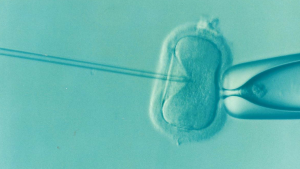It’s no secret that pregnancy is a beautiful, miraculous process. But it can be stressful as well, especially if you’re trying to conceive. So what precautions should you take while trying to conceive?
4 Things to do before trying to conceive
- Take folic acid tablets. Folic acid is a B vitamin that can help prevent neural tube defects, including spina bifida and anencephaly. If you’re trying to get pregnant, talk to your doctor about taking folic acid every day before conception or during early pregnancy (the first 12 weeks).
- Cut back on caffeine and alcohol. Both of these substances may reduce the chances of getting pregnant by decreasing sperm production and increasing the risk of miscarriage or other fetal abnormalities if they are consumed during pregnancy. Caffeine should be limited to 400 milligrams per day while alcohol is avoided altogether; both substances have been associated with reduced fertility in women who drink them regularly during their childbearing years
1. Take folic acid tablets
Folic acid, also known as folate or vitamin B9, is a B vitamin that helps in the development of your baby’s nervous system and brain. It’s available in multivitamin supplements and some foods like orange juice or green leafy vegetables (but not breakfast cereals).
If you’re trying to conceive but have low levels of folic acid in your system already, taking 400 mcg of folic acid each day will help boost your levels so they’re at least normal by the time your period comes around.
2. Cut back on caffeine
Caffeine can affect the body in many ways. It’s a stimulant, which means it will increase your heart rate and blood pressure, making you feel more awake. In addition to these effects, caffeine also causes insomnia (tossing and turning all night), headaches (brain zaps), anxiety (jitters), muscle tension or cramping, irritability/rage attacks
3. Stop smoking and drinking alcohol
Smoking and drinking alcohol can cause birth defects, miscarriage, premature birth and low birth weight. It can also lead to stillbirth or SIDS, a sleep disorder that causes babies to die suddenly after being born.
If you’re having trouble conceiving a child because of smoking or drinking too much alcohol during your pregnancy (or even beforehand), consider quitting cold turkey before starting any treatments that are known to be harmful for unborn babies like fertility drugs and IVF procedures.
4. Lose weight if you’re overweight
If you are overweight before pregnancy, it could be harmful to your baby. You should gain between 25-35 pounds during pregnancy, so that the weight gain is evenly distributed throughout your body. After giving birth, it is important to maintain this weight loss for one year following delivery. If a woman gains more than 35 pounds during her pregnancy or loses more than 12 pounds after giving birth, doctors may recommend that she see an obstetrician as soon as possible so they can monitor her progress and make recommendations about how much exercise she should get each week or month until she reaches her ideal weight again (which should be lower than what it was originally).
Know Here: Does Orgasims Help You Lose Weight
Eat healthy and stay active during pregnancy
You should eat a balanced diet, which means that you should eat 5-6 small meals a day. Eat breakfast every morning and make sure that your meals include fruits and vegetables. You should also try not to skip meals or snack throughout the day.
- Make sure to drink plenty of water every day so that your body is hydrated properly during pregnancy. The more water you consume, the better it will be for both yourself and baby!
- Exercise regularly during pregnancy—this helps relieve stress levels as well as keep yourself fit for labor (which could come sooner than expected). If possible, try yoga or Tai Chi at least three times per week; these activities have been shown time after time again in studies conducted around the globe regarding their ability to improve overall health outcomes among mothers-to-be who partake regularly.
Eat a balanced diet
The first step to ensuring you’re getting all the nutrients your body needs is to eat a balanced diet. You want to avoid foods that are high in saturated fats and salt, as these can disrupt ovulation and cause infertility by increasing inflammation in the body. It’s also important to cut back on sugary drinks like soda or juice when possible; these contain too much sugar (which isn’t good for anyone). Instead of eating too much junk food, opt for more fruits and vegetables; they’re packed with vitamins, minerals and antioxidants that will keep you healthy while trying to conceive!
Increase your vitamin intake
Vitamin supplementation is an important part of any healthy pregnancy, but it’s especially important during and after delivery. When you’re trying to conceive, your body has been working hard for months or even years in preparation for this new chapter of life. It needs all the support it can get from nutrient supplements—and vitamin D is one of them!
Vitamin D deficiency can lead to osteoporosis, a condition that causes thinning bones (osteopenia) and makes them weaker than normal. This can make them more likely to break or fracture under stress like when you’re pregnant or while lifting heavy objects at work. If you don’t get enough vitamin D during pregnancy or breastfeeding, then it might be harder for your body’s metabolism system (the cells that use oxygen) to function properly since they need more energy than usual during these times instead of just absorbing nutrients through eating food sources like meat products which contain good amounts o f iron contained within its fat content.”
These are the precautions you should take while trying to conceive
As you can see, there are a lot of things you should be doing while trying to conceive. It’s important that you take precautions so that your body stays healthy during the process.
- Take folic acid tablets: Folic acid is a B vitamin that helps prevent birth defects like neural tube defects and spina bifida in newborns. If pregnant women don’t get enough folate during pregnancy, they may pass this deficiency on to their babies.
- Cut back on caffeine: Caffeine can affect your ovulation cycle and make it difficult for sperm cells to move through the cervix and uterus (womb). If you have trouble conceiving because of low levels of estrogen after menopause, cutting down on your caffeine intake may help increase those levels again. Even if this doesn’t seem like something worth worrying about right now—and many people don’t need much help getting pregnant—it’s still something worth keeping in mind when trying out different fertility treatments later down the line.* Don’t smoke cigarettes or use other forms of tobacco products; this includes chewing tobacco.* Stop drinking alcohol as soon as possible before conceiving.* Lose weight if needed! Obesity has been linked with infertility issues in both men and women alike.”
Conclusion
You should always be aware of your current health and make sure that you are in a good condition before trying to conceive. You should also consider taking care of yourself during pregnancy by eating healthy, staying active and reducing stress levels. Those who take these precautions will be able to get pregnant faster than those who don’t take them.








